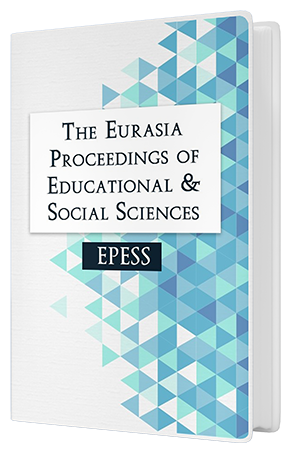INSPECTORS AND FUTURES INSPECTORS’ CONCEPTIONS RELATING TO SEXUALITY EDUCATION
Keywords:
Conception, sexuality education, inspectors and futures inspectorsAbstract
The sexuality education remains a controversial issue in Morocco. Generally, in our society, the topics related to sexuality are social taboo that people avoid approaching by decency, especially with young people. The implementation of this education in school curricula meets obstacles socio-cultural. In this present work, we are interested in the inspector’s and future inspector’s conceptions about sexual education because they are the main actors in the didactic transposition. They participate in development and revision of curricula and syllabuses and they participate in teacher’s mentoring and supervision. The inspector’s beliefs and values have an influence in this didactic transposition. In this topic of strong educational range, conception can be analyzed as interaction between three poles: scientific knowledge (K), values (V) in a very broad sense (opinions, convictions, social representations, beliefs, ideologies), and social practices (P) either professional, families, or citizen according to the model KVP offered by Clement (2004; 2006),We used a questionnaire prepared jointly within the European project Biohead-Citizen , sent to the inspectors and futures inspectors. We present the results and we analyze and discuss the results concerning the age to which certain topic of sexual education should be taught for the first time in school. In this topic, the conception could be deeply rooted not only in scientific knowledge but also in value systems and social practices.Downloads
Published
Issue
Section
License
Copyright (c) 2016 The Eurasia Proceedings of Educational and Social Sciences

This work is licensed under a Creative Commons Attribution-NonCommercial-ShareAlike 4.0 International License.
The articles may be used for research, teaching, and private study purposes. Any substantial or systematic reproduction, redistribution, reselling, loan, sub-licensing, systematic supply, or distribution in any form to anyone is expressly forbidden. Authors alone are responsible for the contents of their articles. The journal owns the copyright of the articles. The publisher shall not be liable for any loss, actions, claims, proceedings, demand, or costs or damages whatsoever or howsoever caused arising directly or indirectly in connection with or arising out of the use of the research material. All authors are requested to disclose any actual or potential conflict of interest including any financial, personal or other relationships with other people or organizations regarding the submitted work.




